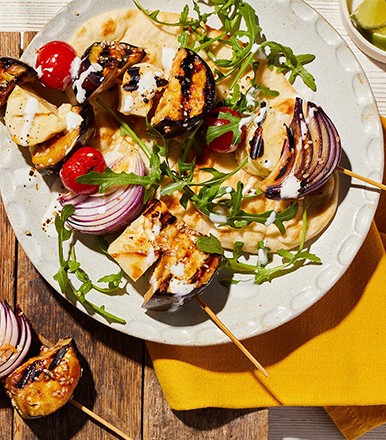Summer transforms everything—most importantly, how we nourish our bodies. As temperatures climb and days stretch longer, our nutritional needs shift dramatically. It's not just about beating the heat; it's about thriving through the most intense season of the year.
Understanding Summer's Nutritional Landscape
What makes summer nutrition so unique? Our bodies undergo significant changes when temperatures rise. Metabolism adjusts, energy requirements fluctuate, and our internal cooling systems work overtime.
The Summer Body Science:
-
Metabolism slows down in extreme heat
-
Sweating increases fluid and mineral loss
-
Digestive system becomes more sensitive
-
Immune response changes with temperature
Think of your body as a sophisticated cooling machine. Just like a car needs the right type of fuel to run efficiently, your body requires specific nutritional support during summer months.
Body Temperature Regulation Starts With Food
Every bite you eat generates heat through digestion—a process called the thermic effect of food. Some foods work harder to cool you down, while others can make you feel like you're stoking an internal fire.
Heat-Generating vs. Cooling Foods:
Heat Generators:
- Red meats
- Fatty foods
- Spicy dishes
- High-protein meals
- Processed foods
Cooling Champions:
- Watermelon
- Cucumber
- Coconut water
- Mint
- Yogurt
- Leafy greens
Pro Nutrition Tip: Aim for meals that are 70% water-rich ingredients during peak summer months. This strategy helps maintain your body's delicate temperature balance while providing essential nutrients.
Digestion Slows Down in Hot Weather
Your digestive system isn't just another bodily function—it's a complex network that responds dramatically to environmental changes. In summer, blood flow prioritizes cooling your exterior, which means less energy for digestion.
Digestive Challenges in Summer:
- Reduced enzyme production
- Slower metabolism
- Increased risk of digestive discomfort
- Higher chances of nutrient malabsorption
Smart Digestion Strategies:
- Eat smaller, more frequent meals
- Choose easily digestible proteins
- Incorporate digestive enzymes
- Minimize heavy, complex dishes
- Stay hydrated between meals
Digestive-Friendly Summer Foods:
- Papaya (contains natural digestive enzymes)
- Yogurt with live cultures
- Steamed vegetables
- Light fish
- Quinoa
- Fresh fruits
Hydration Through Food Is as Important as Drinking Water
Water isn't just what you drink—it's what you eat. The best food to eat in summer provides substantial moisture and electrolytes.
Hydration Heroes (Water Content):
- Cucumber (96% water)
- Watermelon (92% water)
- Lettuce (95% water)
- Strawberries (91% water)
- Zucchini (95% water)
- Tomatoes (94% water)
Electrolyte-Rich Food Bonus:
- Coconut water
- Bananas
- Avocados
- Spinach
- Chia seeds
Hydration Boosting Recipes:
1. Cucumber-Mint Smoothie
- 1 cucumber
- Handful of mint leaves
- Coconut water
- Lime juice
2. Watermelon-Feta Salad
- Cubed watermelon
- Crumbled feta
- Fresh mint
- Olive oil
- Balsamic drizzle
Nutrient Absorption Works Better With Balanced Meals
Summer demands a strategic approach to nutrition. Your meals should provide steady energy, support immune function, and prevent nutrient depletion.
Balanced Meal Blueprint:
- 40% Water-rich vegetables
- 30% Lean proteins
- 20% Complex carbohydrates
- 10% Healthy fats
Nutrient Absorption Boosters:
- Pair vitamin C with iron sources
- Include healthy fats for better nutrient uptake
- Use herbs that enhance digestion
- Consume probiotics
- Eat meals at consistent times
Supports Active and Fit Lifestyle in Summer
Summer is the season of outdoor activities, fitness challenges, and adventure. Your nutrition needs to match this high-energy lifestyle.
Performance Nutrition Principles:
- Quick recovery foods
- Sustained energy sources
- Muscle preservation meals
- Anti-inflammatory ingredients
Easy Healthy Recipes for Summer Athletes:
1. Tropical Protein Smoothie
- Plant-based protein powder
- Mango
- Coconut milk
- Chia seeds
- Turmeric
2. Quinoa Power Bowl
- Cooked quinoa
- Grilled chicken or tofu
- Mixed vegetables
- Avocado
- Lemon-herb dressing
Healthy Vegetarian Recipes:
- Tofu and Vegetable Skewers
- Lentil and Mango Salad
- Chickpea Watermelon Poke Bowls
Helps Prevent Common Summer Issues
Summer brings unique health challenges. Your food can be a powerful preventive tool.
Common Summer Health Challenges:
- Heat exhaustion
- Dehydration
- Digestive issues
- Skin problems
- Reduced immunity
Preventive Food Strategies:
- Anti-inflammatory ingredients
- Natural electrolyte sources
- Cooling herbs and spices
- Antioxidant-rich meals
Healing Food Heroes:
- Chili peppers (boosts metabolism)
- Mint (cooling effect)
- Lemon (vitamin C support)
- Spinach (mineral-rich)
- Tomatoes (lycopene protection)
Encourages Seasonal Eating Habits
Eating with the seasons isn't just a trend—it's a nutritional philosophy that connects you with local, fresh produce.
Benefits of Seasonal Eating:
- Peak nutritional value
- Lower environmental impact
- Support local agriculture
- More affordable produce
- Better taste and freshness
Summer Seasonal Superstars:
- Mangoes
- Watermelons
- Zucchini
- Cucumbers
- Berries
- Bell Peppers
- Tomatoes
Seasonal Eating Tips:
- Visit local farmers markets
- Join community-supported agriculture
- Grow your own herbs
- Experiment with seasonal recipes
- Preserve excess produce
Practical Implementation and Mindset
Summer nutrition isn't about restriction—it's about celebration. It's an opportunity to explore new flavors, try fresh recipes, and truly listen to your body's needs.
Daily Nutrition Rhythm:
- Morning: Light, hydrating breakfast
- Mid-morning: Fresh fruit or smoothie
- Lunch: Balanced, nutrient-dense meal
- Afternoon: Cooling snack
- Dinner: Light, easily digestible proteins
Conclusion:
Summer is more than a season—it's a chance to reset your nutrition. The right foods can keep you cool, energized, and healthy when temperatures rise. Think light, fresh, and hydrating.
Your summer diet should be:
- Easy to digest
- Packed with nutrients
- Hydrating
- Enjoyable
Small changes make a big difference. Choose water-rich fruits, light proteins, and seasonal produce. Listen to your body and eat what makes you feel good.Check out Hello Fitness Magazine. There is never a wrong time to go on a fitness quest. Contact us and allow us to assist you in leading a better lifestyle. Follow us on Instagram. We share the best Health & Fitness related Articles for information based on healthy eating, health and fitness recommendations, health problems and their solutions, human body fitness, and much more.














